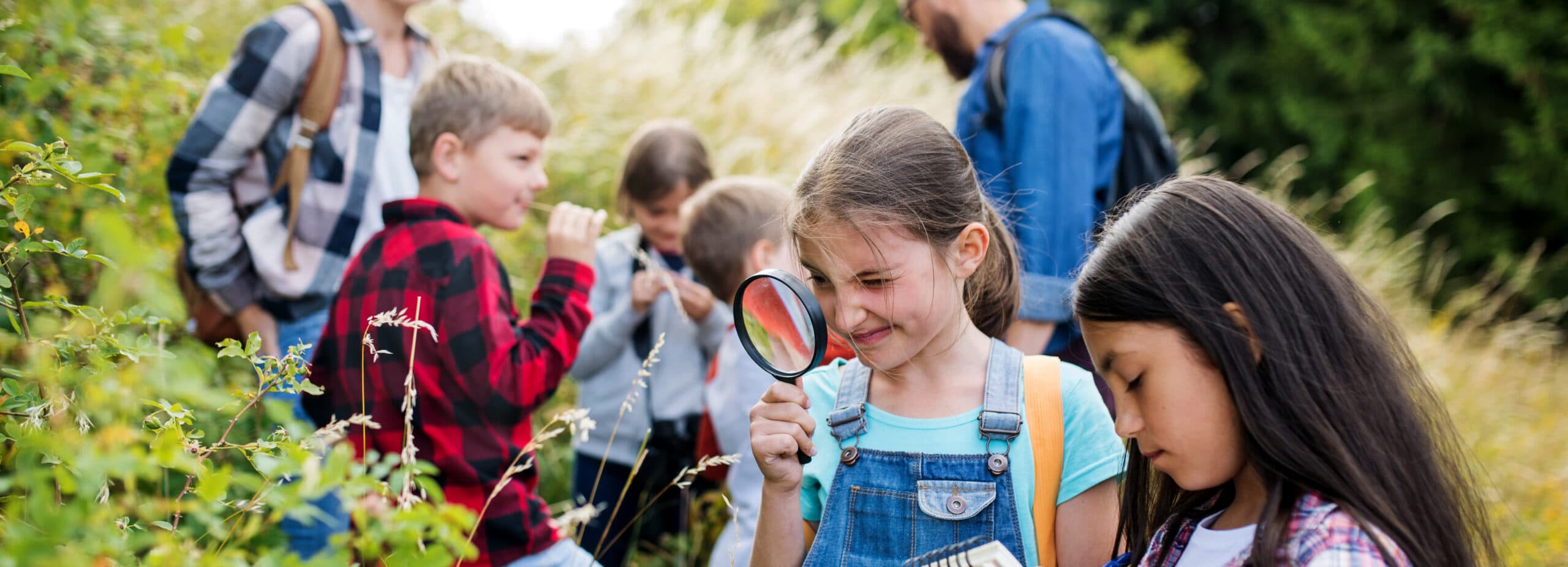

JCC camps are a cornerstone of community engagement, personal growth, and Jewish identity. For decades, these camps have provided children with enriching experiences that blend recreation, education, and cultural traditions. Today, the demand for structured summer programs is growing, and JCC camps are uniquely positioned to meet this need.
In this blog, experienced JCC leaders share their firsthand insights on running impactful camps, from creating meaningful traditions to boosting enrollment and managing operations efficiently.
Camp is special! The summers are hot and busy, but on the last day of camp, when campers are hugging and crying as they get into their cars, it is all worth it.
The Demand for Summer Programming is Growing
Parents are actively seeking high-quality summer experiences for their children, and participation in structured summer activities is increasing. In 2023, 55% of U.S. parents enrolled their child in at least one structured summer program, such as day camps or enrichment courses, according to a Gallup poll. The desire for these programs is growing, with nearly half of K-12 parents (48%) in 2024 wishing their child could have participated in more summer activities than they did the previous year.
JCCs aren’t the only ones seeing a growing demand for camps and childcare. Parks and recreation centers have seen the demand for camps grow as well, with 68.4% saying they offered day camps and summer camps in 2024, up from 66.8% in 2023. When analyzing same-store nonprofit customer data, Daxko also found that childcare and camp fees increased 5% year-over-year (net, minus discounts).
For JCC leaders, this increasing demand presents both an opportunity and a responsibility. Camps are no longer just a summer staple—they are an essential part of a child’s development, providing enriching experiences that extend far beyond the season itself. The immersive experience is what makes JCC camps so valuable—they offer structured environments where children build friendships, develop leadership skills, and connect with Jewish culture in a meaningful way.
Meeting the Needs of Today’s Families
As family expectations evolve, JCC camps must continue to deliver experiences that go beyond childcare. More than ever, parents want programs that provide enrichment, personal growth, and social connection. Research published in the Journal of Youth Development found that camp participation helps children develop empathy, humility, and altruism—all skills that are essential for long-term success.
Additionally, as technology becomes more embedded in everyday life, families are actively seeking ways to disconnect and engage in real-world experiences.
We will see a surge of interest in all youth programming. With the advent of artificial intelligence, families will want to disconnect from technology and connect to people.
To meet these evolving expectations, JCCs must be intentional about designing programs that balance fun with skill-building. Some ways camps can rise to the challenge include:
- Expanding Specialized Programs: Parents are increasingly looking for camps that offer targeted learning experiences, such as STEM, arts, and outdoor adventure programs. By incorporating specialty tracks, JCC camps can appeal to a broader range of interests while still fostering a strong sense of community.
- Prioritizing Social-Emotional Learning (SEL): Camps that integrate SEL principles—such as teamwork, leadership, and conflict resolution—help children develop the interpersonal skills they need for success in school and beyond. Structured group activities, mentorship programs, and collaborative projects can create meaningful learning experiences.
- Year-Round Engagement: Families don’t just want a great summer—they want ongoing community connections. JCCs that extend camp-inspired programs into the school year, such as weekend retreats, service projects, or family activity days, can keep families engaged and increase retention year after year.
- Emphasizing Jewish Values in Everyday Camp Life: While traditions like Shabbat celebrations or Israeli dance are key highlights, many JCC camps are also weaving Jewish values into daily activities.
Every week has a value which is highlighted by an event, and staff are encouraged to talk about it with their group. For example, a food drive culminates on the week of Tikkun Olam.
Lessons from JCC Leaders on Running a Meaningful & Successful Camp
While every JCC camp has its own unique traditions and structure, the most successful programs share common themes: strong leadership, a commitment to Jewish values, and a focus on both camper and family engagement. To explore what makes a JCC camp truly impactful, we turned to experienced JCC leaders who have navigated the challenges and opportunities of running a thriving camp.
Creating Unforgettable Camp Experiences
At the heart of every JCC camp is the ability to create lifelong memories for campers and staff alike. These moments of joy, connection, and discovery are what keep families returning year after year.
There have been so many highlights over the years. Probably my favorite memory from my first summer at Camp Kef was on our last day of camp. We watched a highlight video from the summer and then all the campers got up and did an Israeli dance together that they had been learning all summer. It was amazing to see the entire camp moving together to an Israeli song, really embracing the impact of Jewish camping.
Creating these unforgettable moments requires intentional programming and a staff that is deeply invested in the camp experience. Some ways JCC camps can foster these special moments include:
- Developing signature traditions that campers look forward to each year, such as end-of-camp celebrations, talent shows, or community service projects.
- Encouraging camper-led activities to give children ownership over their experience, helping to build confidence and leadership skills.
- Integrating Jewish cultural elements into daily camp life, whether through music, storytelling, or special themed weeks.
I am really focusing on cool activities for the older campers. We are looking into a two-night overnight trip for our 6th and 7th graders and weekly service project trips for the CITs.
Advice for New JCC Camp Directors
For those stepping into a leadership role at a JCC camp, the first summer can feel overwhelming. From managing staff to engaging families, there are countless moving parts.
Take it slow. You don't need to improve everything or make 100 changes in one summer. Give yourself time to get to know the program and evaluate where camp is at. Then implement a few things each year to ensure camp is growing.
Integrating Jewish Values into Camp Programming
One of the defining characteristics of JCC camps is their ability to seamlessly weave Jewish values, traditions, and culture into the camp experience. Whether through storytelling, community service, or shared rituals, these elements help campers connect to their Jewish identity in a meaningful way.
Many JCCs structure their camp programming around weekly themes tied to Jewish values, reinforcing important lessons through hands-on activities. Beyond formal programming, Jewish values can also be infused into the camp culture itself.
We integrate Jewish values and traditions through our programming, such as our Chavaya program. Chavaya means 'experience' in Hebrew, and our campers 'experience' Jewishness through food, art, stories, and other hands-on activities. We also integrate Jewish values every day by teaching our camp values through our actions.
While every camp has its own unique approach, some successful strategies include:
- Tying values to action: Concepts like Tikkun Olam or Kavod can be reinforced through service projects, nature conservation activities, or daily kindness challenges.
- Making traditions interactive: Instead of just teaching about Jewish customs, camps can immerse campers in them through music, dance, and hands-on activities.
- Encouraging staff to model values: Counselors and leadership play a crucial role in demonstrating Jewish values through their behavior, helping campers see these principles in action.
By embedding Jewish traditions and values into the rhythm of camp life, JCCs create an environment where campers feel a deep sense of connection—to each other, their community, and their heritage.
Strategies for Increasing Enrollment and Engagement
For JCC camps to thrive, strong enrollment and ongoing family engagement are key. Many JCC leaders have found success by focusing on word-of-mouth marketing, referral incentives, and post-camp programming to keep families connected year-round.
One of the most effective ways to grow enrollment is through referrals from current camp families. Parents trust recommendations from their peers, making word-of-mouth marketing one of the most valuable tools for attracting new campers.
We have implemented a 'bring a friend' bonus. Returning families receive a rebate for each new family they recruit. Our biggest marketing tool is word of mouth, so we wanted to lean into that.
A strong relationship with families shouldn’t end when camp does. Offering year-round engagement opportunities helps JCCs maintain connections, increase retention, and encourage future enrollment. Here are some ways JCCs are keeping families engaged:
We run many year-round programs like Before and After School, Enrichment Courses, School's Out Days, Kid's Night Out, and Sunday Fundays, all set in the 'fun camp environment. This is something we are working on over the next few years. We have started a monthly newsletter as well as a camp-specific Instagram. We are also testing out family engagement days to get our families together during the year.
With parents juggling busy schedules, the registration process must be simple and accessible. Using an online camp management system can help streamline sign-ups, payment plans, and communication, making it easier for families to enroll and stay informed. Regular updates, engaging social media content, and parent-friendly camp software also play a crucial role in keeping families connected and excited about camp.
Managing Costs, Safety & Operations
Running a successful JCC camp requires careful financial planning, strong safety protocols, and efficient operations. Camps operate on tight budgets, making it essential to balance high-impact investments with strategic cost-cutting.
Spend where you want to and save where you can. I am a big believer that you have to spend money to make money. I like to invest in my people and special activities. Then I try to save on supply costs or things that don’t matter to the kids. Our camp used to have a very expensive ice cream truck come each summer. I cut this, and we had a store-bought sundae bar instead. We saved thousands of dollars, and the kids loved it just as much. Have an emergency fund for unexpected expenses—which inevitably pop up during programming.
With campers participating in outdoor activities, field trips, and group events, safety is a top priority. JCC leaders stress the importance of structured protocols and constant vigilance.
Have a documented procedure for all known tasks or events. When a new task or event happens, document that in the moment. Count your kids! I always tell counselors: when moving to a new activity, count your kids and count them again—especially while out on a field trip. I like when one counselor is in the front of the group, and another is leading from the back. This ensures the kids are surrounded.
Behind the scenes, well-organized operations help camps run smoothly. Using technology for online registration, staff scheduling, parent communication, and camp arrival day can save time and reduce administrative burdens. Additionally, investing in staff training and appreciation can improve retention and morale.
Learn how the Jewish Community Center (JCC) of Greater Albuquerque increased program registrants by 30% since 2020 with Daxko.
The Future of JCC Camps: What’s Next?
As family needs evolve and new challenges emerge, JCC camps must continuously adapt to stay relevant and impactful. From changing parent expectations to advances in technology, the future of JCC camps will be shaped by a commitment to innovation, engagement, and community connection.
Rising Expectations for Summer Programming
Families today expect more than just a safe place for their children during the summer—they want enriching experiences that justify the investment. To meet these expectations, JCC camps will need to continue offering diverse programming, including specialty camps focused on STEM, arts, outdoor adventure, and leadership development.
Child care will always be needed, so from that standpoint, we will always need summer camp. But the bar keeps rising. Parents expect that their kid is not just safe and taken care of while they are at work, but they expect they are learning, having fun, making friends, and really enjoying their experience. Camp is expensive, and we as a field need to continue raising the bar and meeting expectations to justify the high prices we charge.
The Push for More Screen-Free, Social Experiences
As technology becomes more embedded in everyday life, many families are seeking opportunities for their children to disconnect from screens and engage in real-world experiences. This shift presents an opportunity for JCCs to emphasize the importance of face-to-face interactions, outdoor activities, and social-emotional learning as core components of their camps.
We will see a surge of interest in all youth programming. With the advent of artificial intelligence, families will want to disconnect from technology and connect to people.
Expanding Year-Round Engagement
While summer is the core camp season, many JCCs are already extending their offerings into year-round programming. Expanding engagement through after-school programs, school break camps, and family events can help strengthen community ties and provide additional revenue streams. Camps that build lasting relationships with families beyond the summer months will be better positioned for long-term success.
The future of JCC camps is bright, and by staying tuned in to changing family needs, investing in innovative programming, and reinforcing their role as centers for Jewish community and engagement, JCCs can ensure that their camps continue to thrive for generations to come.
Engage Your Campers Today
Looking for more ways to engage families before, during, and after camp? Download the Nonprofit Marketer’s Guide to Community Outreach for expert tips on building stronger connections with your community year-round.
Subscribe to our blog
Curated trends and resources, right to your inbox.



